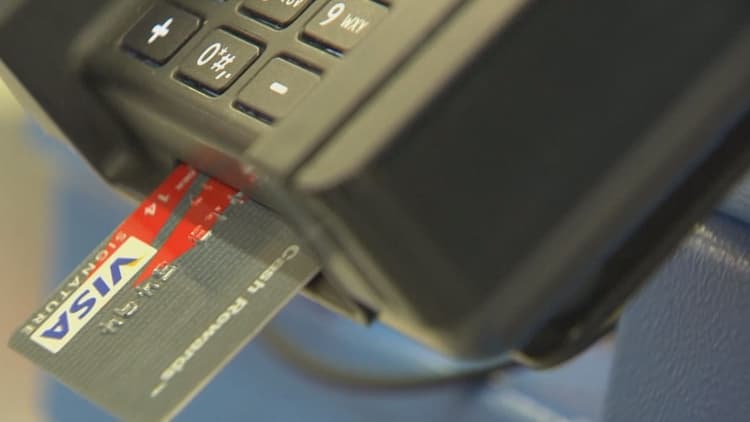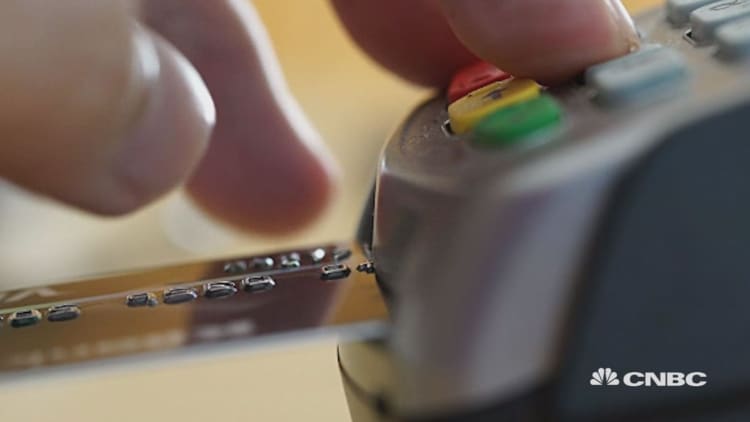
If you haven't recently checked to see whether the credit card you're using is the right one for you, you could be leaving money on the table.
A new survey from CreditCards.com found that 12 percent of credit card users, or 20 million individuals, have not switched cards in 10 or more years, while 28 percent, or 49 million, have always used the same card.
"That's an awful lot of people who are missing out on an opportunity to get some rewards and missing an opportunity to make a real impact on their budget," said Matt Schulz, senior industry analyst at CreditCards.com.
Cutting down on any credit card debt is especially important this year because the Federal Reserve is expected to steadily raise rates, Schulz said. That means you will be paying more interest on any outstanding balances.
Where to start
Regardless of how long you have owned a credit card — whether more than 10 years or six months — ask yourself how you use the card and what you want to get out of it.
Check your existing credit card accounts to track how you spend, including restaurant, gas and grocery purchases. Then identify what you want to get from a card, whether it be cash back or points toward travel.
"All of these basic questions can help guide you to the right card if you take the time to ask them," Schulz said.
Choose a new card
Once you have identified how you will use the card, look for a card that matches your goals.
If you're looking to transfer a balance or just keep a balance, look at cards with the lowest interest rates. Rates currently range from the low teens to the mid-20s, Schulz said, though it is possible to get an even lower annual percentage rate if you have excellent credit.
If you plan to take advantage of rewards, look for cards that offer the biggest bonus. Watch out for cards that require you spend a certain amount to get that reward, such as $3,000 or $4,000 within a few months.
"The last thing people should do is overspend to get rewards," Schulz said. "That's just asking for trouble."
Also be sure to keep in mind how you will use the card. If you frequently travel overseas, for example, look for a card that doesn't have foreign transaction fees.

Keep your old card
While you may be tempted to close the account on your old card completely, keeping it open will help boost your financial record.
"Generally speaking, there's no reason to cancel an old credit card," Schulz said. "The longer you have a credit card with a good history, the better it is for your credit."
The exception to that rule is if your old card comes with an annual fee and you are certain you're not going to use it anymore, Schulz said.
CreditCards.com's online survey was conducted earlier this month and included 2,228 U.S. adults.
More from Personal Finance:
This hidden threat can devour more than $100,000 of your wealth


